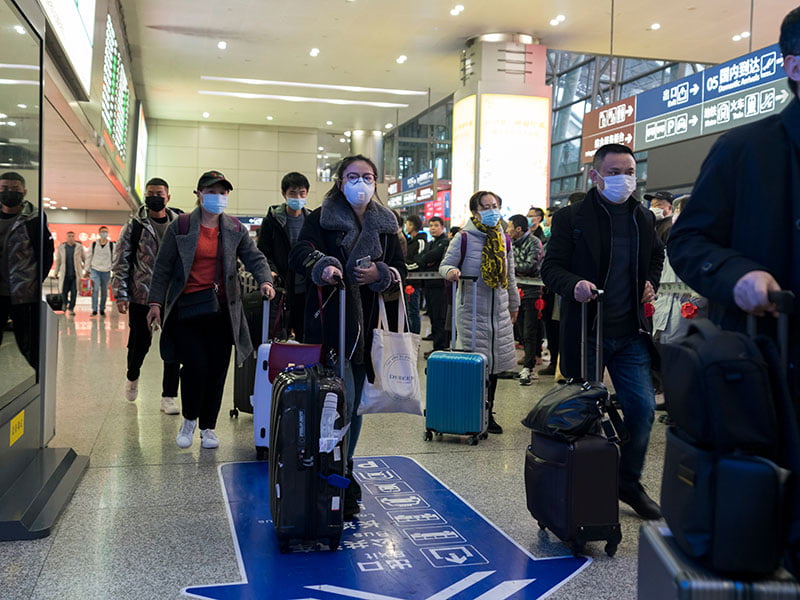The Digital Passenger Declaration has been shelved, with new Home Affairs minister Clare O’Neil acknowledging it “needs a lot more work” even after more than $60 million has been poured into the outsourced development of the underlying platform, which had been slated to eventually be used across government.
On Sunday Ms O’Neil issued a statement saying people travelling to Australia will no longer have to complete a Digital Passenger Declaration (DPD) to declare their COVID-19 vaccination status from Thursday.
The DPD launched in March, replacing the Australia Travel Declaration. The smartphone app collects contact information, vaccination status, passport information and travel history from people arriving in Australia by air.
The DPD was the first test of the Home Affairs ‘permissions capability’ project, which is intended to one day be used across government for permission-based services.

The federal government last year selected tech consulting giant Accenture to deliver a permissions capability and set the DPD as its first use case.
But the launch was delayed and the DPD received scathing reviews from passengers, while the public sector union criticised the “error riddled” app and the outsourcing of the critical government technology.
Ms O’Neil acknowledged the backlash and the DPD contributing to delays at airports around the country when announcing the decision to remove it.
The adjustments come into effect from midnight on Wednesday July 6, 2022 after changes to the Biosecurity Act, which also mean that all visa holders can travel to Australia without needing a travel exemption.
“Removing these requirements will not only reduce delays in our airports but will encourage more visitors and skilled workers to choose Australia as a destination,” Ms O’Neil said.
“And for Australian citizens, with the removal of these requirements, returning home will be much easier.
“I know anyone who has travelled internationally since the borders have opened will find this as one less thing to worry about – especially as more Australians get back to travelling overseas.
“We’ve also listened to feedback about the DPD. While in time it will replace the paper based incoming passenger card, it needs a lot more work to make it user friendly”
The issues with the DPD and the underlying permissions capability come after large parts of the project were outsourced through a procurement process now being examined by the audit office.
The Digital Transformation Agency issued a tender for the permissions capability in late 2020. Nearly a year later it was announced that Irish-domiciled tech giant Accenture had been selected to deliver the permissions capability.
Accenture was awarded a standing offer notice for the work, and a number of contracts related to it have since been made public.
Accenture has been awarded contracts worth more than $60 million for work on the permissions capability and its first function, the DPD.
The 2020-21 budget allocated $74.9 million for the project, but more than this has already been handed out through the contracts. Further funding was allocated in last year’s MYEFO but was kept secret due to “commercial in confidence sensitivities”.
It’s not the first time the federal government has attempted to go to the market for this project, with a previous attempt scrapped in early 2020 after more than $90 million had already been spent.
The procurement process for that attempt became mired in conflict of interest concerns, with no successful bidder selected before it was canned.
Do you know more? Contact James Riley via Email.


When will the Federal Government stop outsourcing critical applications effectively at concept stage. The only ones making money are the senior partners of firms tendering for the work, who are generally to far removed from any real service delivery. The application clearly did not work as intended. I experienced major problems with it recently returning from overseas but needed to take work around as functions like scanning were very poor even using current Apple iPhone technology. The application was clearly not tested under proper load conditions and even if it was, issues with end to end processing would have clearly stood out.
Surely if the contract was well designed and well managed, significant compensation should be recoverable. Why should tax payers pay the high costs of this application to date – an application that will probably be shelved quietly in the near future.
What capability outside of the mobile app was delivered for $75m such that it can be harvested for reuse? Nil.
Kick these buffoons out who are tipping money into the drain like drunk cowboys in a bordello.
So so discriminatory against anyone not tech literate and so poorly communicated.
150 people at Bangkok airport on their phones and laptops whilst in the check-in queue!
The absolute arrogance.
You’ve already linked your vax Cert to Aussie passport fcs!
People should be sacked.
One more irritant removed for older Australian travellers.
Great decision by O’Neill, and a pleasant surprise. A rare victory for voters and common sense – if only Home Affairs would learn something from this utter debacle of Pezzullo style arrogance. Not only was their app crapp, but why should we even have to go online overseas at all, just to fill in a silly form under pressure, to suit the government?
Thanks goodness for common sense by Clare O’Neil in ditching the useless DPD requirement. The arrogance of the top echelons of Home Affairs (Pezzullo et al) in refusing to admit the app was useless and full of problems is quite clear, maybe it’s time to ditch them also. The millions of dollars of wasted money squandered is a disgrace and someone should be made to explain.